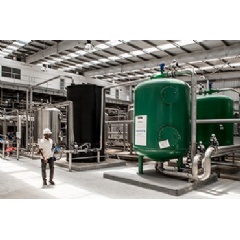Last but Not Yeast
Ask most beer lovers to reel off the ingredients of their favorite tipple and they will probably say malted barley, hops and water. All present and correct; however, the brewing process would not be complete without another vital – but often overlooked – ingredient: yeast.
Yeast is responsible for fermentation and is the last of the four key ingredients to be added in the brewing process. When yeast is added to beer it immediately begins to consume the sugars, producing alcohol and carbon dioxide, which gives beer both its alcohol content and its carbonation.
Yeast also plays an important role in determining the flavor profile of the beer, as different strains are used to produce ales and lagers.
The use of yeast to brew alcoholic drinks can be traced back more than 5,000 years – featuring in Ancient Egyptian hieroglyphics – which means we discovered the ‘magical’ effects of yeast long before we would have known the exact science behind them.
What is yeast?
Yeast is life in its simplest form: the single-cell micro-organism. It is part of the fungus family, and is distributed widely throughout the natural word, including in soil, vegetation and marine environments. Certain strains are also natural inhabitants of human beings and animals.
A typical yeast cell is roughly the same size as a human red-blood cell, and is spherical to ellipsoidal in shape. They are so tiny that it takes about 30 billion cells to make a single gram of compressed baker’s yeast.
There are 500-600 known strains of yeast, many of which can be bought from commercial yeast banks – giving us an almost unlimited range of options when devising a new variety of beer.
As beer’s only living ingredient, yeast survives fermentation and can be collected and re-used. Many breweries have been using the same strain of yeast for generations; indeed, such is its longevity that microscopic quantities of yeast were extracted from a 220-year-old beer bottle found in a shipwreck in 2016, and subsequently used to brew beer in a unique scientific experiment.
The future of yeast
Scientists are also hard at work trying to devise new strains of yeast that could produce even better beer. One group – based in our ‘home town’ of Leuven, in Belgium – are working on a joint initiative, by the University of Leuven and the Flanders Institute for Biotechnology, to build the perfect yeast.
Clever stuff – which should ensure a few more chapters will yet be written in the story of mankind’s oldest-known industrial micro-organism.
( Press Release Image: https://photos.webwire.com/prmedia/6/213934/213934-1.jpg )
WebWireID213934
This news content was configured by WebWire editorial staff. Linking is permitted.
News Release Distribution and Press Release Distribution Services Provided by WebWire.
